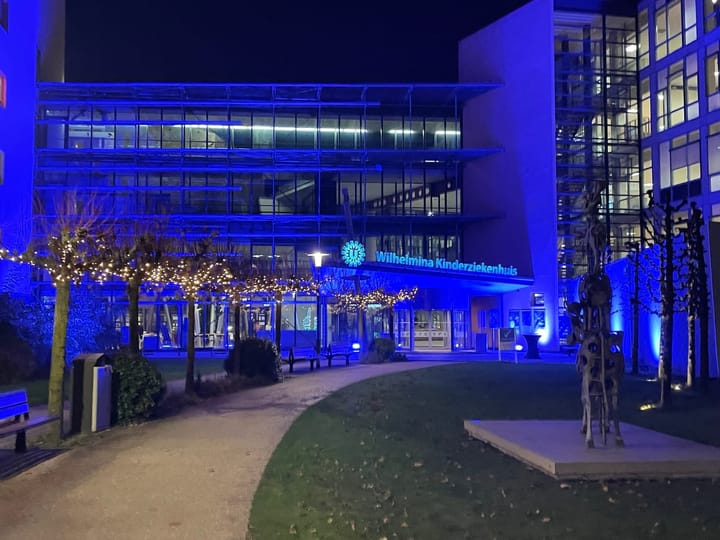Understanding the Terms: Web, Online, Digital, and Cyber
Clarifying "web," "online," "digital," and "cyber": Learn why web strategy is vital for creating meaningful online experiences and how LLMs enhance this role.

When I stumbled upon the Dutch Defence Forces seeking reservists for their cyber warfare command, it made me rethink the terms we often use interchangeably: "web," "online," "digital," and "cyber."
It was a wake-up call that I should have addressed earlier, but better late than never. Clarifying these terms not only helps me navigate these topics more effectively but also solidifies my identity as a web strategist.
Web: For me, the "web" is where it all began. It refers to the World Wide Web, a system of interlinked hypertext documents accessed via the Internet. This is where websites reside and interact, creating a dynamic space for information and communication. As a web strategist, I focus on crafting and optimizing websites to foster human connection and meaningful interactions. The web is my playground, where content and ideas flow freely.
Online: Being "online" means being connected to the Internet, covering activities like web browsing, email, social media, and online services. While important, "online" is a broader term that doesn't capture the specific realm I operate in. My work is deeply rooted in the web, where the focus is on creating engaging content and user experiences.
Digital: The term "digital" encompasses any technology using digital signals, from computers and smartphones to smart home devices. Digital strategists often integrate various technologies to create a cohesive digital presence. However, my passion lies in the web, where the emphasis is on content strategy and human connection rather than just the technology itself.
Cyber: "Cyber" is often associated with the virtual world of the Internet and computer networks, focusing on cybersecurity, cybercrime, and the technological aspects of digital activities. When I considered the cyber warfare command, I realized how specialized and security-focused this area is. While crucial, it doesn't align with my primary interest in fostering communication and growth through the web.
Web – Connecting people
Online – Anytime, anywhere
Digital – Transforming processes
Cyber – Protecting and securing
Why "Web Strategist" is the Right Choice for Me
Choosing to call myself a web strategist wasn't just a professional decision; it was a reflection of my values and interests.
Human Connection Over Channels: My work centers on creating meaningful connections through the web. Unlike an "online strategist" who might focus broadly on all Internet activities, I prioritize how websites and web content can foster human engagement and interaction.
Information Over Transaction: A "digital strategist" might lean towards integrating various technologies and focusing on transactional aspects. In contrast, I emphasize the importance of information, content, and helping individuals and organizations grow and flourish through the web.
Strategic Analysis and Implementation: As a web strategist, I analyze current web trends and activities for client organizations, develop comprehensive plans to align with their goals, and collaborate with them to put these plans into motion. This holistic approach ensures my strategies are not only visionary but also actionable and tailored to my clients' needs.
Focus on Content and Message: Unlike "cyber strategists," whose primary concern might be the security and technical integrity of digital environments, my focus is on crafting and delivering the right message. My expertise lies in content strategy, user experience, and ensuring that web interactions are meaningful and impactful.
Sidenote: I started 30 years ago as a webmaster. It's an old-fashioned term, a bit romantic even. But throughout my career, the web has been a constant presence. This evolution from webmaster to web strategist feels logical to me. When I began, the web was more of a side project; now, it has moved to the core of so many things we do. This progression reflects not only the growth of the web itself but also my deepening expertise and focus in this ever-evolving field.
Integrating Large Language Models (LLMs) into Web Strategy
My interest in Large Language Models (LLM's) significantly enhances my role as a web strategist.
These advanced AI tools allow me to:
- Enhance Content Creation: LLMs can generate high-quality content tailored to specific audiences, ensuring that the language and message resonate deeply with users.
- Improve User Engagement: By analyzing user interactions and feedback, LLMs help refine content and user experiences, making websites more engaging and effective.
- Streamline Communication: LLMs can assist in automating and optimizing communication strategies, from customer support to personalized marketing messages, enhancing overall user satisfaction.
- Data-Driven Insights: Leveraging LLMs allows for the analysis of vast amounts of data to uncover trends and insights that inform strategic decisions and content development.

My Role as a Web Strategist
Being a web strategist means being a visionary and a planner. I:
- Analyze: Assess the current state of a client's web presence, identifying strengths, weaknesses, opportunities, and threats.
- Plan: Develop strategic plans that align with the client's future goals and vision, ensuring web activities support broader business objectives.
- Collaborate: Work closely with client organizations to implement these plans, providing guidance and support throughout the process.
- Execute: Oversee the execution of web strategies, ensuring all elements are put into motion effectively and efficiently.
Focusing on the web allows me to weave together content, design, user experience, and strategy into a cohesive and engaging web presence for my clients. While "online," "digital," and "cyber" each have their place, "web strategist" best captures the essence of my work. It highlights my commitment to language, human connection, and the strategic use of the web to help organizations grow and thrive.
Realizing the nuances of these terms was a journey, sparked by an unexpected encounter with the cyber warfare command. It helped me clarify my focus and reaffirm that being a web strategist aligns perfectly with my passion and expertise.
Integrating LLMs into my work further enhances my ability to create meaningful connections and deliver impactful content, making the web a powerful tool for growth and communication.





